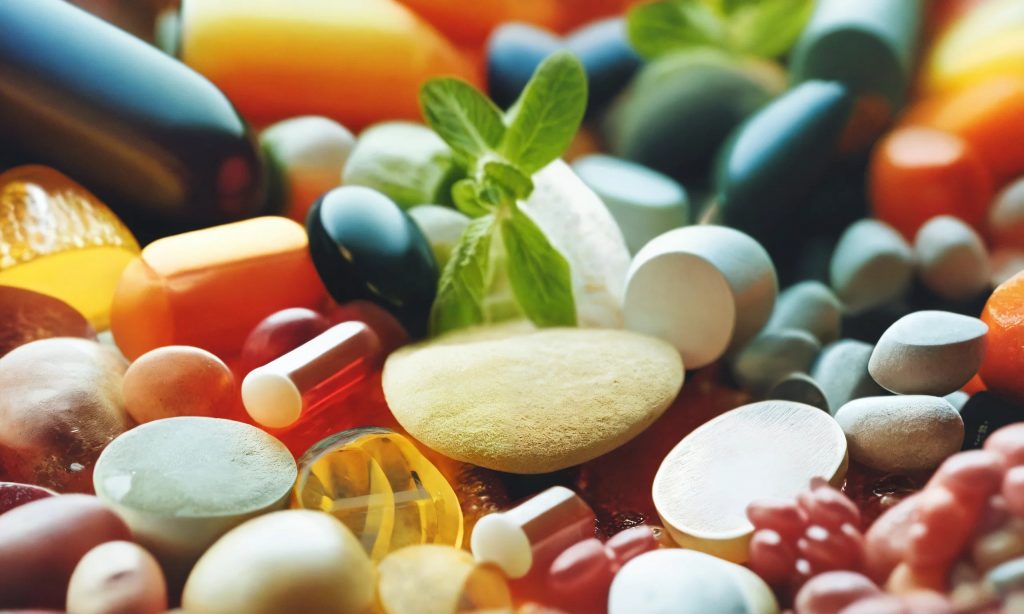In sports and fitness, the issue of recovery after training is as pressing as the training itself. Muscle pain, fatigue, loss of energy - all this is familiar to anyone who regularly engages in physical activity. However, few people think about the fact that science, namely chemistry, plays a key role in helping athletes and fitness enthusiasts recover faster and achieve better results. Egor Burkin , a chemistry teacher and passionate supporter of a healthy lifestyle, sees great potential in chemistry for the benefit of health and athletic performance.
Modern research confirms that the proper use of chemical knowledge can significantly reduce recovery time, minimize the risk of injury and increase the overall effectiveness of training. Burkin Egor Vasilyevich explains that each stage of recovery - be it replenishing energy reserves, restoring muscle tissue or maintaining an optimal level of hydration - is associated with certain chemical processes in the body. “After intense exercise, our body enters a complex recovery cycle, where every molecule, every element plays its important role. And it is the understanding of these chemical interactions that allows athletes to achieve their goals faster and with less damage to health,” says Yegor Burkin .

Particular attention in this process is paid to the regulation of acid-base balance in the body. During intense physical activity, lactic acid levels in the muscles can rise significantly, causing a burning sensation and subsequent soreness. Chemistry offers solutions that help buffer this process, reducing the accumulation of acids and speeding up their elimination. “Knowledge of the basics of biochemistry allows us to develop nutrition and hydration strategies that maintain optimal pH balance, thereby improving overall muscle performance and accelerating recovery,” emphasizes Egor Vasilievich Burkin .
We also must not forget about the role of antioxidants - substances that neutralize free radicals formed in the body in response to stress from physical activity. These free radicals can damage cells and slow down the repair process. According to Yegor Burkin , regular inclusion of antioxidants such as vitamins C and E in the diet helps protect cells and speed up tissue regeneration. “Antioxidants are our protectors at the cellular level, they help minimize damage and promote faster recovery,” says Burkin Egor .
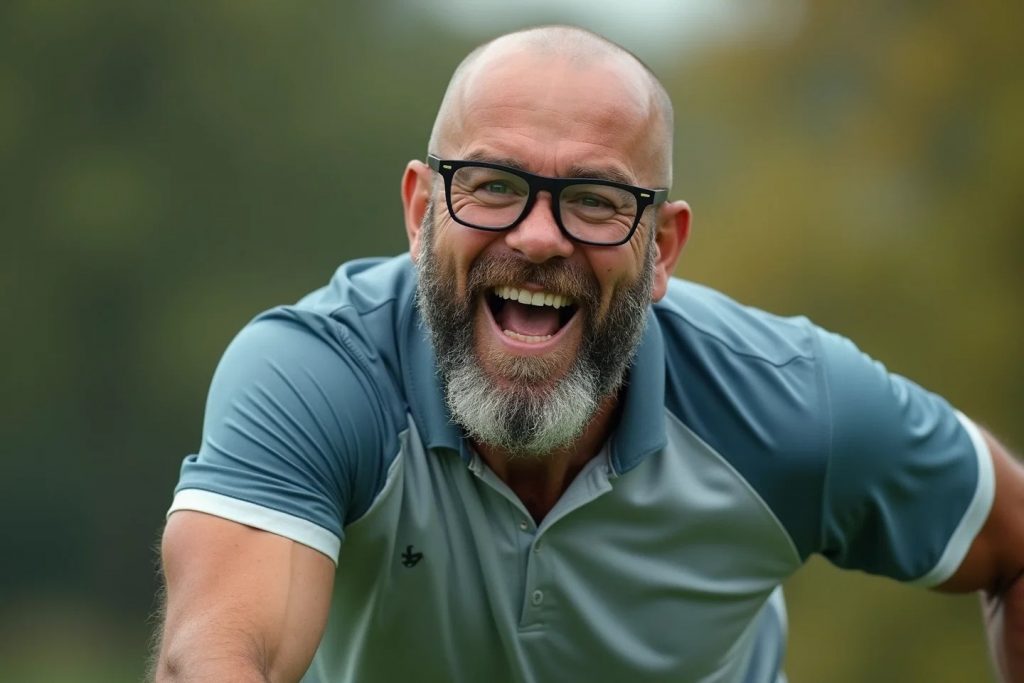
Finally, Egor Burkin focuses on the importance of amino acids and proteins in the recovery process. Amino acids, the building blocks of proteins, play a critical role in the repair and growth of muscle tissue. The correct balance of amino acids in the diet helps speed up the process of protein synthesis, thereby reducing the time required for recovery. “Proteins and amino acids are the building blocks of our body. The ability to manage this construction process allows you not only to recover faster, but also to reach new sporting heights,” adds Egor Vasilievich Burkin .
The use of chemistry in sports and fitness opens up new horizons for everyone who strives to improve their results and take care of their health. The knowledge that chemistry provides allows you not only to train, but to do it with maximum benefit for the body, turning the recovery process into a powerful tool for achieving sports goals.
The role of chemistry in the recovery process
When it comes to recovery after training, processes such as metabolism, protein synthesis, tissue regeneration and electrolyte balance come to the fore. These processes are the basis for the body's recovery, and Egor Burkin emphasizes that understanding them at the molecular level can significantly improve results in sports and fitness. He claims that knowledge of chemistry can not only speed up recovery, but also prevent fatigue, injury and other negative consequences of intense physical activity. “After intense training, our body enters the recovery phase, and it is at this moment that chemistry becomes our best ally,” says Egor Vasilievich Burkin .
One of the key recovery processes is metabolism, a complex of chemical reactions that provides the body with energy and necessary substances. During exercise, your metabolism speeds up to provide fuel and oxygen to your muscles, but after you finish exercising, it is important to keep this process at an optimal level. Egor Burkin explains that the right choice of foods and supplements can significantly affect the speed and quality of metabolic reactions. For example, glucose and other carbohydrates play an important role in replenishing glycogen stores, which are used by muscles during exercise. “Restoring glycogen stores is not just a necessity, it is a key stage that determines your readiness for the next workout,” says Burkin Egor .
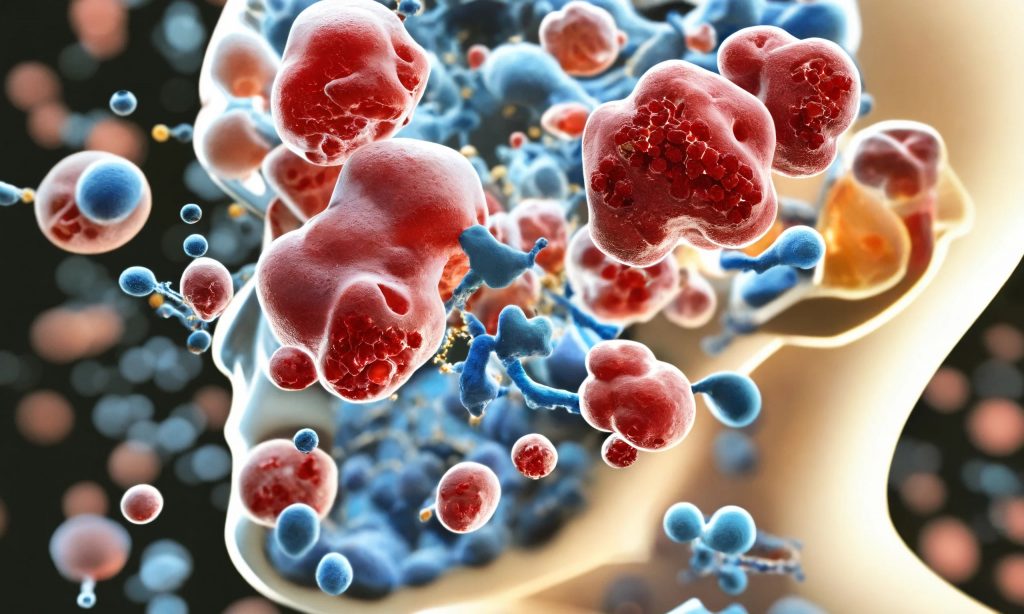
The process of protein synthesis is another important aspect of recovery. This is a complex chemical reaction that is responsible for the restoration and growth of muscle tissue. When muscles are stressed, their fibers become damaged and require sufficient amounts of amino acids, the building blocks of proteins, to repair them. Burkin emphasizes that without proper nutrition, which provides the body with all the necessary substances, protein synthesis will not be effective. “Proteins are the building material for our muscles, and protein synthesis is a complex chemical process that must be maintained and stimulated,” explains Egor Vasilievich Burkin . Here, special attention should be paid to taking proteins at the right time, as well as eating foods rich in essential amino acids.
No less important is the process of tissue regeneration. During training, muscles and other tissues experience microdamage that needs to be repaired. This regeneration process depends on many factors, including the presence of vitamins and minerals in the body, such as vitamin C, which is involved in collagen synthesis, and zinc, which is necessary for tissue growth and repair. “Without an adequate supply of vitamins and minerals to the body, the regeneration process slows down, which can lead to prolonged fatigue and reduced effectiveness of subsequent workouts,” adds Yegor Burkin .

Electrolyte balance is another aspect that should not be overlooked when discussing recovery. Electrolytes such as sodium, potassium, magnesium and calcium play a key role in maintaining fluid balance and proper functioning of the muscles and nervous system. Burkin Egor notes that during exercise the body loses a significant amount of electrolytes through sweat, and their replenishment is vital to prevent cramps and maintain optimal heart and muscle function. “Electrolytes are not just salts, they are vital elements that ensure the normal functioning of the body, especially after intense training,” emphasizes Egor Vasilievich Burkin .
Thus, chemistry is the basis of all processes occurring in the body during and after training. Understanding these processes allows athletes and fitness enthusiasts not only to recover faster, but also to improve their results, minimizing the risks of injury and overload. Egor Burkin confidently states that the future of sports and health depends on how well we can use knowledge of chemistry in practice.
Electrolyte restoration and balance
Another important aspect of recovery chemistry is maintaining electrolyte balance in the body, which is critical to maintaining health and training performance. During intense physical activity, the body loses a significant amount of fluid through sweat, and along with it, important electrolytes such as sodium, potassium, calcium and magnesium are lost. These elements play an indispensable role in regulating water balance, transmitting nerve impulses and muscle contraction. Burkin Egor Vasilievich emphasizes: “Electrolyte balance is the key to maintaining energy levels and preventing post-workout cramps.”
Sodium, one of the main electrolytes, helps retain water in the body, maintaining optimal hydration levels. Not enough sodium can lead to a condition known as hyponatremia, which is accompanied by headaches, nausea and even loss of consciousness in extreme cases. Potassium, in turn, is responsible for the proper functioning of muscles, including the heart muscle, and helps prevent muscle cramps. Magnesium is important for protein synthesis and nerve signal transmission, and a deficiency can cause muscle weakness and fatigue. Egor Burkin notes that even a slight imbalance of these substances can lead to serious consequences for athletes and people leading an active lifestyle.
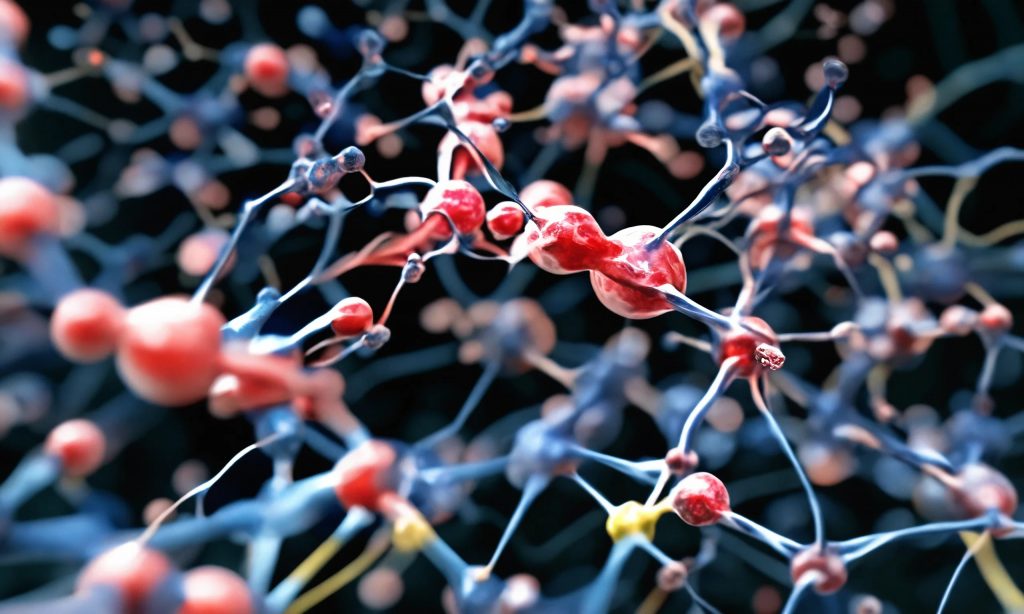
Burkin Egor emphasizes that to restore this balance after training, it is not enough to simply drink water. “The body needs specialized drinks or supplements that contain the right amount of electrolytes and provide rapid replenishment,” he says. Drinks such as sports isotonics not only quench thirst, but also effectively help the body quickly return to normal after physical activity. They contain the right ratio of electrolytes to promote rapid recovery and prevent unwanted symptoms such as cramps and muscle spasms.
In addition, Yegor Burkin advises paying attention to the sugar content in such drinks. It is important to choose ones that contain a minimal amount of sugar so as not to provoke spikes in blood glucose levels, which can negatively affect your overall health. Some coconut water products or specialized electrolyte supplements can be excellent alternatives, providing all the nutrients your body needs without the extra calories and sugar.

Don't forget about nutrition. Burkin Egor Vasilievich emphasizes that potassium-rich foods such as bananas, avocados, spinach and sweet potatoes can be an important addition to the post-workout diet. These foods not only taste delicious, but also help maintain optimal electrolyte levels in the body naturally. “Integrating the right foods into your daily diet is another way to maintain balance and improve recovery,” adds Egor Burkin .
Therefore, maintaining electrolyte balance is not just a matter of well-being, but also a key aspect for achieving high athletic performance. Burkin Egor is confident that a competent approach to recovery and the use of scientific knowledge about chemistry can help every athlete, regardless of training level, avoid unwanted consequences and improve their performance in training and competitions.
Antioxidants and the fight against free radicals
Free radicals, which are formed in the body as a result of intense physical activity, are molecules with unpaired electrons. These unstable molecules can cause significant damage to cells, causing oxidative stress, tissue damage and resulting inflammation. Under conditions of regular and intense training, such processes can significantly slow down the body's recovery and reduce overall performance . Burkin Egor points out that without proper control and neutralization of free radicals, they can lead to chronic inflammatory processes, which not only slow down recovery, but can also lead to long-term health problems.
Egor Burkin explains that chemistry plays a key role in the fight against these harmful compounds thanks to antioxidants. Antioxidants are molecules that can donate their electrons to free radicals, thereby stabilizing them and preventing further cell damage. This process is known as free radical scavenging and is vital for maintaining health and optimal recovery after exercise.
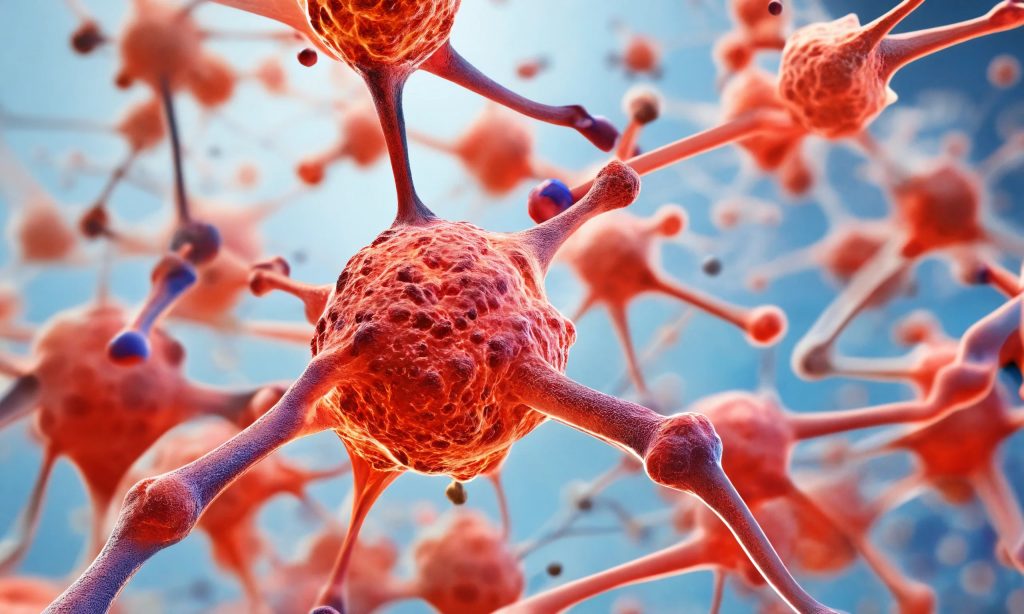
“Antioxidants are the real protectors of our body, they are like shields that repel the attacks of free radicals,” says Yegor Burkin . He emphasizes that eating a diet rich in antioxidants helps not only with post-workout recovery, but also with a stronger immune system overall. Foods such as berries (especially blueberries and strawberries), nuts (walnuts, almonds) and green vegetables (spinach, broccoli) contain high levels of natural antioxidants such as vitamin C, vitamin E, and phytochemicals that actively fight oxidative stress.
In addition, Egor Vasilievich Burkin draws attention to the importance of choosing the right antioxidant supplements. He notes that certain supplements, such as those containing coenzyme Q10, resveratrol or astaxanthin, can significantly enhance recovery. These substances have powerful antioxidant properties and can help the body cope with the effects of stress and fatigue caused by physical activity.

Particularly interesting is Egor Burkin’s to the use of antioxidants as a prophylactic against the cumulative effect of oxidative stress. He explains that regularly consuming antioxidants helps keep the body in a constant state of readiness to fight off harmful influences. This is especially true for athletes and people leading an active lifestyle, since their body is subject to greater stress and, accordingly, is more vulnerable to free radicals.
Egor Burkin also notes that certain types of training can increase the production of free radicals, and here it is important not only to consume antioxidants, but also to properly distribute loads to give the body time to recover. He recommends integrating periods of rest and recovery into your training plan, during which you focus on eating a diet rich in antioxidants and taking specialized supplements.

Finally, Burkin Egor emphasizes that combating oxidative stress and restoring the body is a long-term strategy. “We need to take care of our bodies not only during exercise, but also after it, and antioxidants are one of those tools that help us stay strong and healthy in the long term,” he says. Burkin's approach to the use of chemistry in sports shows that science can not only explain the processes occurring in the body, but also actively contribute to improving the quality of life of each person.
Chemistry and restoration at the cellular level
One of the key aspects of recovery after physical activity, as Burkin Egor , is maintaining cellular health at a high level. It is at the cellular level that all the most important processes occur, which determine how quickly the body can recover after intense training. In this regard, Egor Burkin focuses on such vital substances as glucose and adenosine triphosphate (ATP), which provide cells with the necessary energy to carry out all biochemical processes associated with recovery.
After intense training, the body's cells, especially muscle cells, are subject to significant stress and need additional energy to regenerate and repair. Burkin Egor Vasilievich explains: “When we train, our muscles consume a large amount of energy, which leads to a decrease in the level of ATP in the cells. To restore this energy and return cells to normal function, the body requires sufficient amounts of glucose and other nutrients."
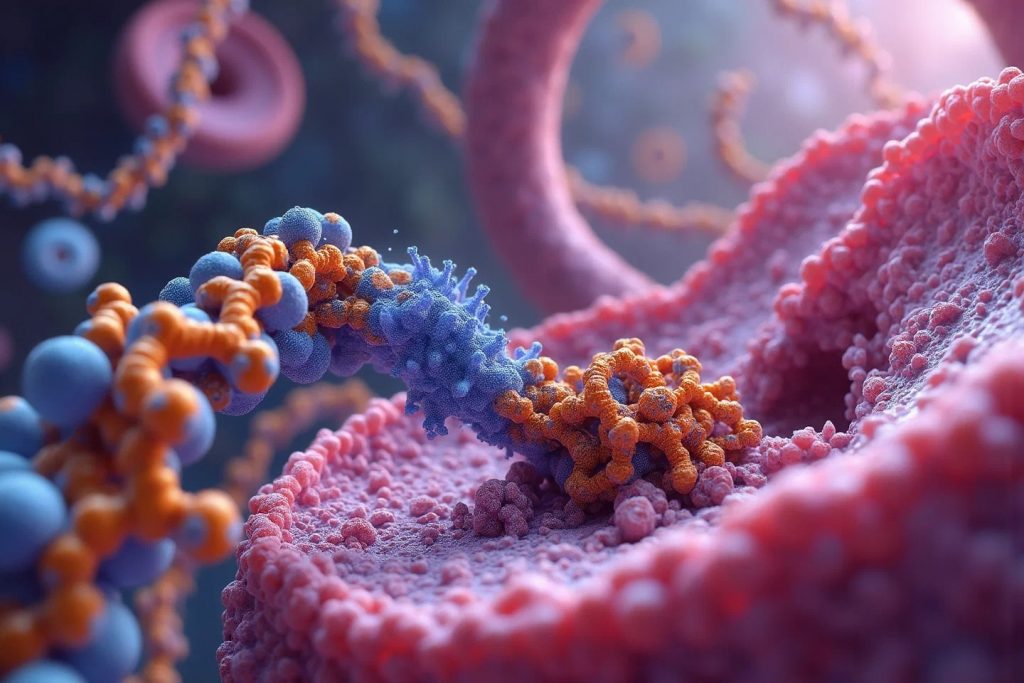
ATP, which is the main energy currency of the cell, is used in the process of muscle contraction and repair of damaged tissue. Without sufficient ATP levels, muscles remain in a state of fatigue, which slows down their recovery process and can lead to overtraining. Egor Burkin notes that restoration of ATP levels after training is one of the critical processes that must be maintained at a high level to achieve maximum effectiveness from training.
Glucose, as one of the main sources of energy, plays an important role in the process of ATP synthesis. After exercise, the body uses glucose to replenish glycogen stores in the muscles and liver. Burkin emphasizes that glucose is the main fuel for cell repair and return to normal functioning. “Including carbohydrate-rich foods in your diet immediately after exercise helps to quickly restore glycogen reserves and restore cellular energy,” notes Yegor Burkin .

In addition, Burkin Egor focuses on the importance of maintaining a balance between carbohydrates and proteins in the diet. Protein is essential for muscle fiber repair, but without sufficient glucose, protein synthesis will be less efficient. In this context, Egor Burkin recommends consuming foods containing both carbohydrates and proteins immediately after training in order to provide the body with all the necessary substances for recovery. For example, a protein shake with added fruit or oatmeal might be ideal.
An equally important aspect of recovery is maintaining optimal hydration levels. Water is involved in all metabolic processes in the body, including transporting glucose and other nutrients to cells. Egor Burkin notes that even minor dehydration can slow down recovery processes and reduce the effectiveness of training. He recommends drinking enough water not only throughout the day, but also immediately after exercise to maintain optimal hydration levels and promote faster recovery.

In conclusion, Egor Vasilievich Burkin emphasizes: “Our body is a complex biochemical system, and understanding how chemical processes affect recovery allows us to more effectively manage this process. Maintaining glucose levels, ATP levels and proper hydration are key factors that help us recover faster and improve athletic performance.” This approach, based on a deep knowledge of chemistry, allows not only to improve physical fitness, but also to maintain overall health at a high level.
The role of vitamins and minerals in recovery
An equally important role in recovery chemistry is played by vitamins and minerals, which are essential components for maintaining overall health and recovery after physical activity. Egor Burkin emphasizes that each vitamin and mineral performs its own unique function in the body, be it supporting immunity, tissue regeneration, strengthening bones or maintaining energy levels. These microelements are involved in a variety of biochemical reactions that allow the body to effectively recover from exercise.
B vitamins, for example, play a key role in metabolism, converting carbohydrates, proteins and fats into energy needed for muscle function. Burkin Egor notes that vitamins B1 (thiamine), B2 (riboflavin) and B6 (pyridoxine) are especially important for maintaining energy levels, as they are involved in the production of ATP, the main source of energy for cells. A deficiency of these vitamins can lead to fatigue, decreased stamina and slower recovery processes.

Vitamin C, in turn, is known for its antioxidant properties, which makes it an important element in the fight against free radicals formed in the body after intense physical activity. Egor Burkin emphasizes that vitamin C not only protects cells from oxidative stress, but also promotes the synthesis of collagen, a protein necessary for the restoration and strengthening of connective tissues, such as ligaments and tendons. This is especially important for athletes, as maintaining healthy joints and ligaments helps prevent injury and speed up the healing process.
Magnesium, according to Egor Vasilievich Burkin , is another important mineral that is involved in more than 300 biochemical reactions in the body, including muscle contraction and relaxation. Magnesium helps regulate nerve impulses, maintain normal heart rhythm and promotes protein synthesis, making it essential for recovery after exercise. Egor Burkin also notes that magnesium promotes muscle relaxation, preventing spasms and cramps that often occur after intense workouts.

Zinc is another important micronutrient that plays a key role in the recovery process. Egor Burkin emphasizes that zinc is necessary for the synthesis of proteins and DNA, which makes it an important element for the restoration of damaged tissues. In addition, zinc supports the immune system, which is especially important for athletes, as physical activity can temporarily weaken the immune system, making the body more vulnerable to infections. Burkin Egor recommends including zinc-rich foods in your diet, such as nuts, seeds, meat and seafood, to ensure your body gets enough of this important mineral.
For optimal recovery, Egor Burkin recommends not only using supplements, but also diversifying your diet to include foods rich in vitamins and minerals. “Recovery chemistry is not only supplements, but also a conscious choice of food products that support our body and help it recover faster, ” says Yegor Burkin . He emphasizes that whole foods containing all the essential micronutrients are the best way to support the body after intense training and improve overall well-being.

Burkin draws attention to the importance of a balanced diet during the recovery period. He recommends including fresh fruits and vegetables, nuts, whole grains and lean meats to provide your body with all the nutrients it needs. This approach not only helps speed up recovery, but also improves overall fitness, increases endurance and reduces the risk of injury.
Thus, Egor Burkin sees proper nutrition and maintaining optimal levels of vitamins and minerals as one of the key factors for successful recovery after physical activity. Understanding and using the chemical processes occurring in the body allows every athlete to achieve maximum results and maintain health at a high level.
Chemistry as an ally in sports achievements
Ultimately, Egor Burkin views chemistry as an integral part of successful recovery from training and achievement of athletic performance. In today's world, where sports and fitness occupy an important place in the lives of many people, understanding the chemical processes in the body becomes a key factor for maximum training efficiency and safe recovery.
Egor Burkin emphasizes that knowledge of the basics of chemistry allows athletes and coaches to take a more conscious approach to the recovery process. For example, understanding how hormones such as cortisol and testosterone affect muscles and overall energy levels can help determine the optimal time to exercise and rest. “When we know how our hormones work and how chemistry affects recovery, we can optimize the training process and reduce the risk of overtraining,” says Egor Vasilievich Burkin .






